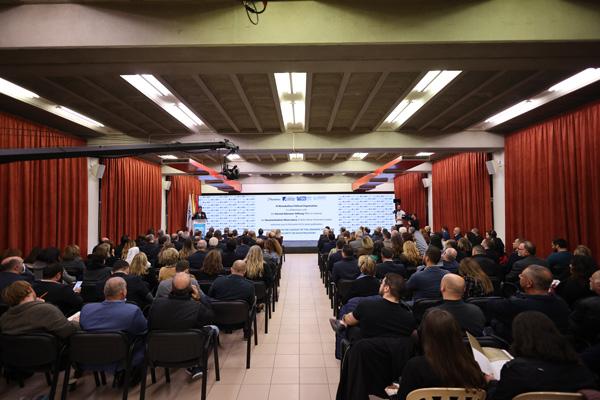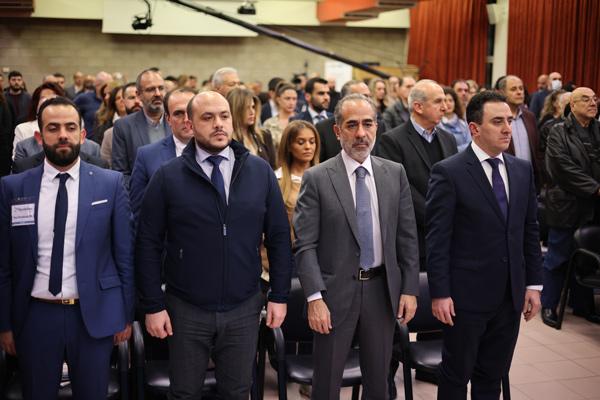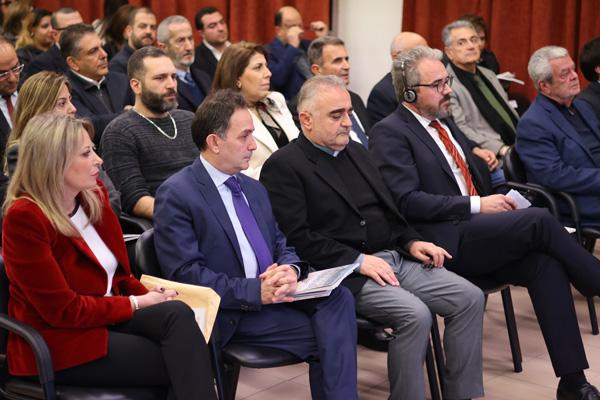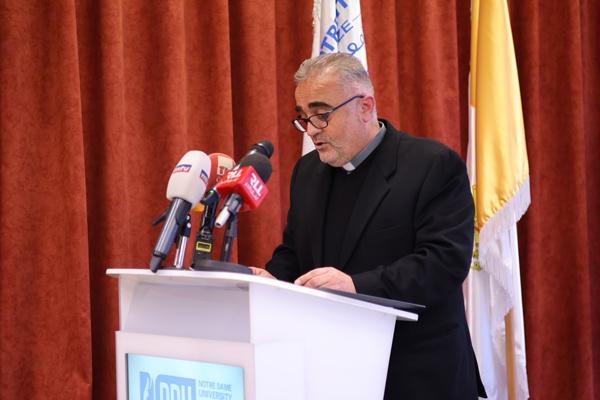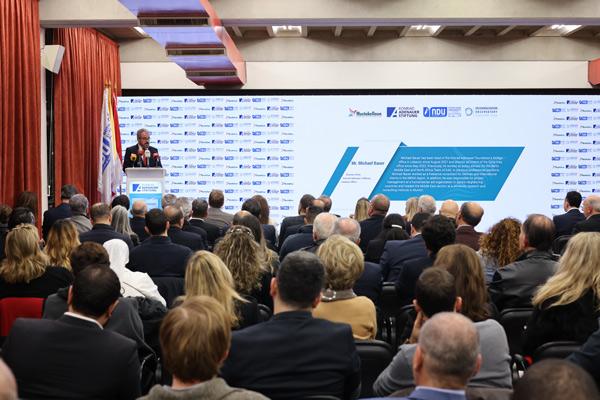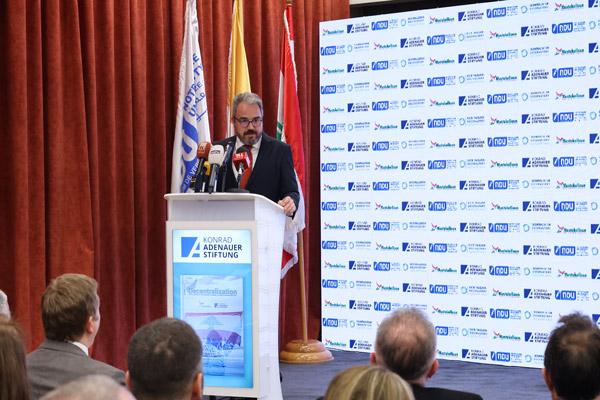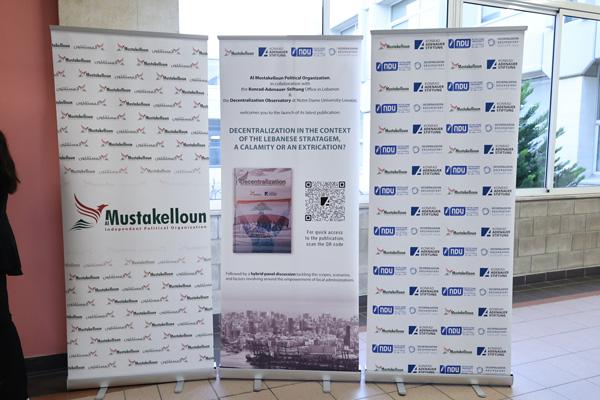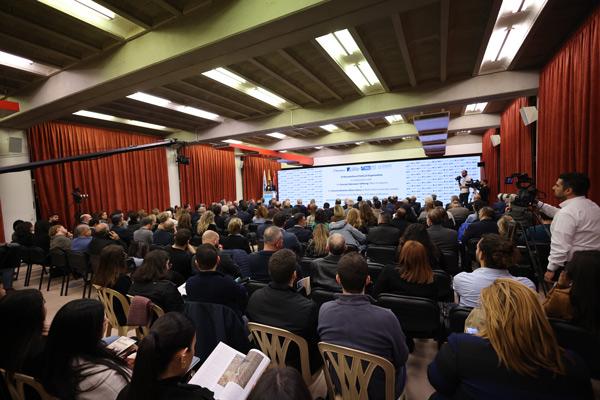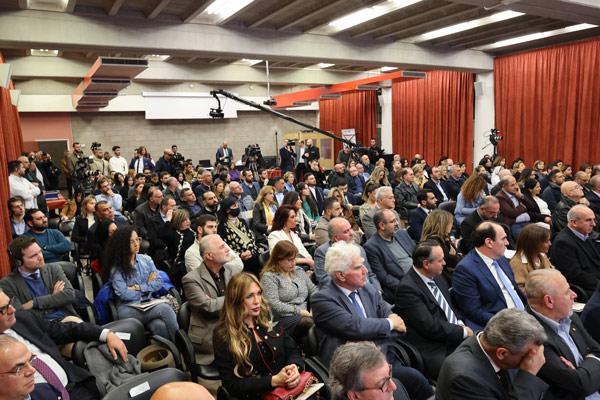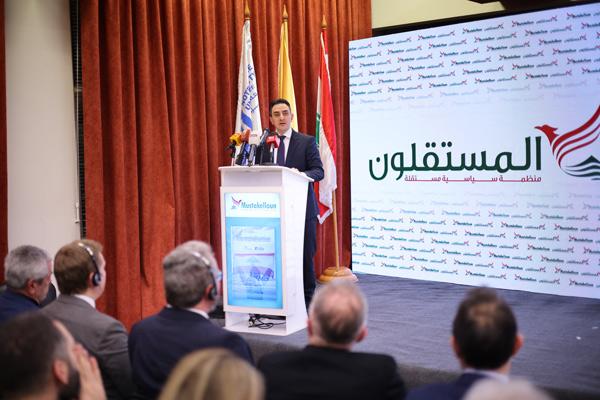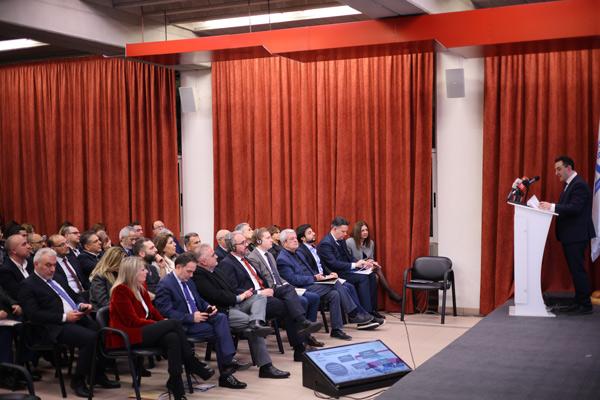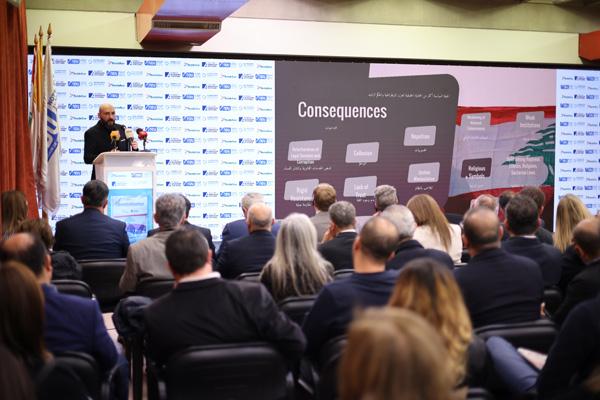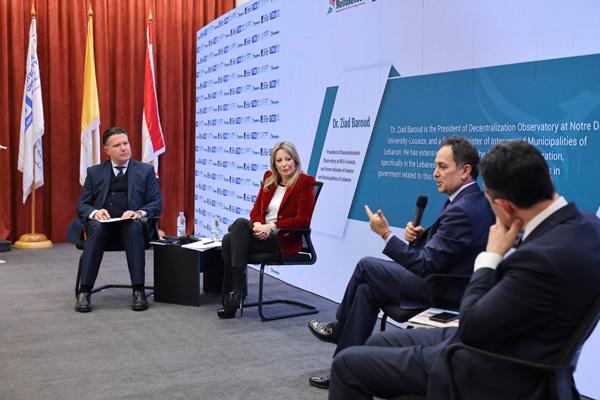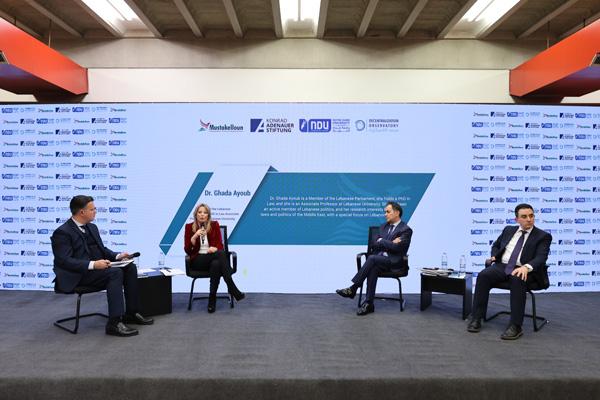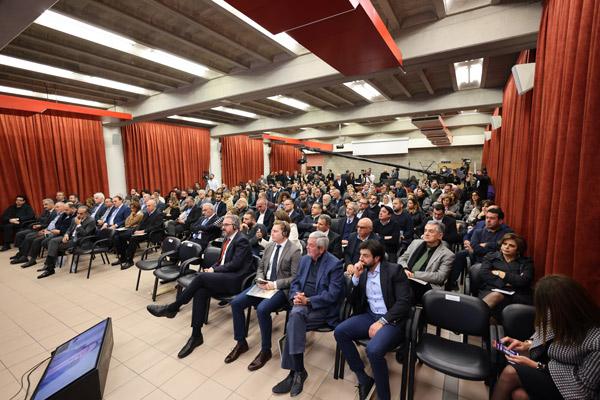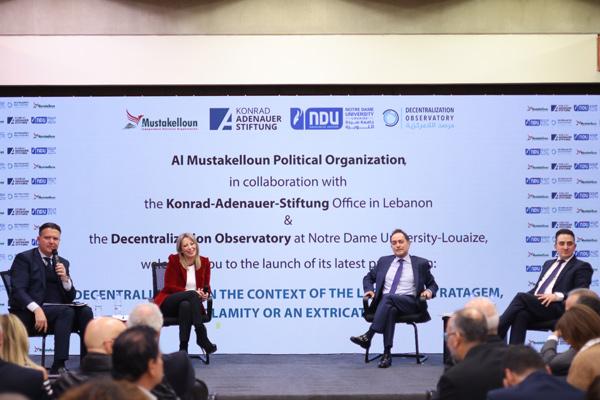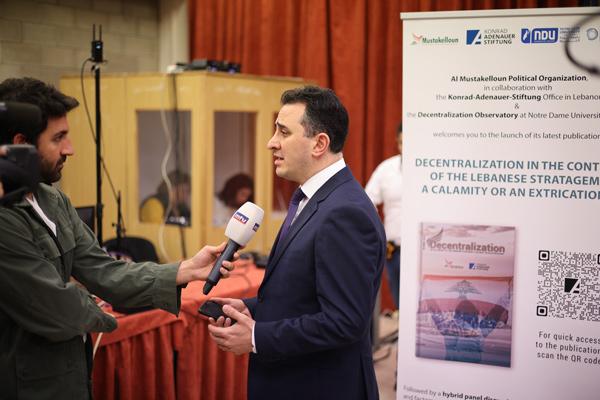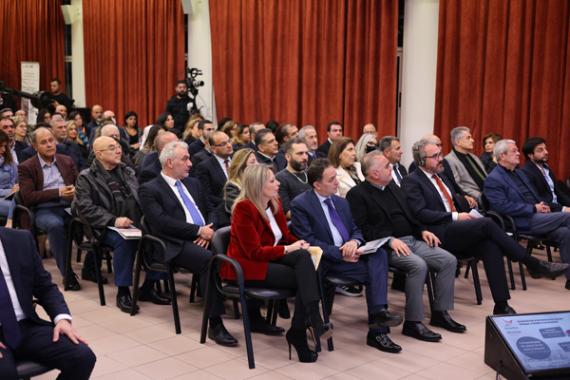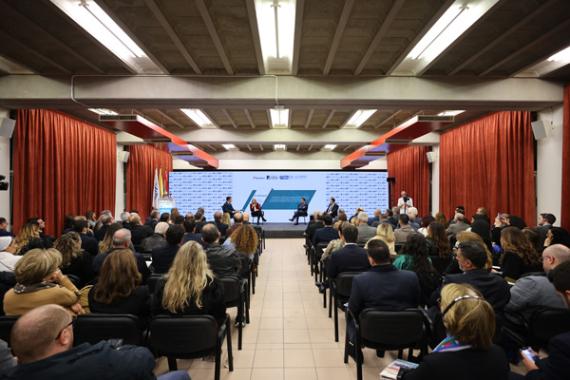On Friday, January 20th, 2023, Konrad-Adenauer-Stiftung Lebanon, “Al Mustakelloun” Political Organization and the Decentralization Observatory at Notre Dame University-Louaize jointly organized the launching event of a new study on decentralization in the context of the Lebanese stratagem. The event, held at Notre Dame University-Louaize main campus, attracted a high level of participation from experts, politicians, and representatives from civil society.
The study, titled "Decentralization in the Context of the Lebanese Stratagem, a Calamity or an Extrication?", examines the current state of decentralization in Lebanon and identifies the political, economic, social, technological, environmental, and legal factors facilitating and/or hindering the proper implementation of decentralization.
Opening the event, Fr. Bechara Khoury, President of Notre Dame University-Louaize, welcomed the attendees and stressed the importance of holding panel discussions on decentralization, highlighting Lebanon's urgent need for advancement and restructuring.
Mr. Michael Bauer, Director of KAS Lebanon, pointed out in his address that "Decentralization is intensively debated in Lebanon and KAS seeks to contributing to the public debate on this important topic. That’s why I collaborated with the “Al Mustakelloun” to publish this study."
Dr. Razi El-Hage, the founder and president of "Al Mustakelloun" and a member of the Lebanese Parliament, took the stage next. In his speech he emphasized on the need to revive the middle class as a crucial foundation to build a strong society, breaking the clientelist system, while also establishing accountability within a genuine democratic system.
Following El Hage’s speech, the publication “Decentralization in the Context of Lebanese Stratagem, A Calamity or an Extrication?” was presented by Eng. Rodolph Saade, lead author and policy advisor.
Panel Discussion
The launch event featured a panel discussion with national and international experts, moderated by journalist Majed Bou Hadir. MP Dr. Ghada Ayoub, member of the Lebanese Parliament, and Dr. Ziyad Baroud, head of the Decentralization Observatory at Notre Dame University- Louaize and former Minister of Interior, joined from Lebanon. From Germany participated Mr. David Lüngen, city director and the first deputy mayor of Mülheim an der Ruhr, and from Iraq, Dr. Hamza Haddad, visiting fellow at the European Council on Foreign Relations. The panelists analyzed the prospects and challenges of decentralization as well as scenarios and factors that need to be considered when discussing the empowerment of local administrations.
Dr. Ziad Baroud
Baroud stated during his discussion that “No decentralized system can be simply imported from abroad to Lebanon, even if it is excellent. Instead, it needs to be tailored to the complexities of the Lebanese reality.”
“We are no longer in the stage of research and documentation. Our next step must be now pressuring for the approval of the decentralization bill that has been stuck in the Lebanese Parliament since 2016. (...) Decentralization is not an end goal, rather it serves as a tool for managing diversity and promoting democratic participation at the local level” he explained.
Dr. Ghada Ayoub
MP Ghada Ayoub, a member of the "Strong Republic Bloc," stated: “It is no coincidence that the expanded administrative decentralization has not been approved until today.” She pointed out that certain political figures seek to retain the central government in place in order to further their own interests, control, and power.
According to Ayoub, some political elites are resisting the passage of the decentralization law because the central authority is a means for them to exercise influence and achieve their interests, particularly after the Ta’if accord. Ayoub noted that many of the major barriers to administrative decentralization would be eliminated if political leaders were ready to do so. She called on to question the need of a decentralization model that is effective and viable. The challenge today is which forms of decentralization are successful and feasible.
Mr. David Lüngen
Participating via Zoom, Mr. David Lüngen said: “In Germany, we have a multi-level system, which means that we have a hierarchy of rules, laws and legislation. Power and authority is distributed across the federal, state and municipal levels. The system is very well established, however, it also needs to be managed. At times, there is a competition among the German states and there is a fiscal equation scheme through which economically successful states support states that are less successful.”
Mr. Hamza Haddad
In turn, the political expert in Iraq, Mr. Hamza Haddad, made another intervention via “Zoom”, and considered that “Iraq is certainly one of the countries from which Lebanon can learn and should be careful not to repeat its mistakes that were made there after 2003.”
The study is now available for download here.



